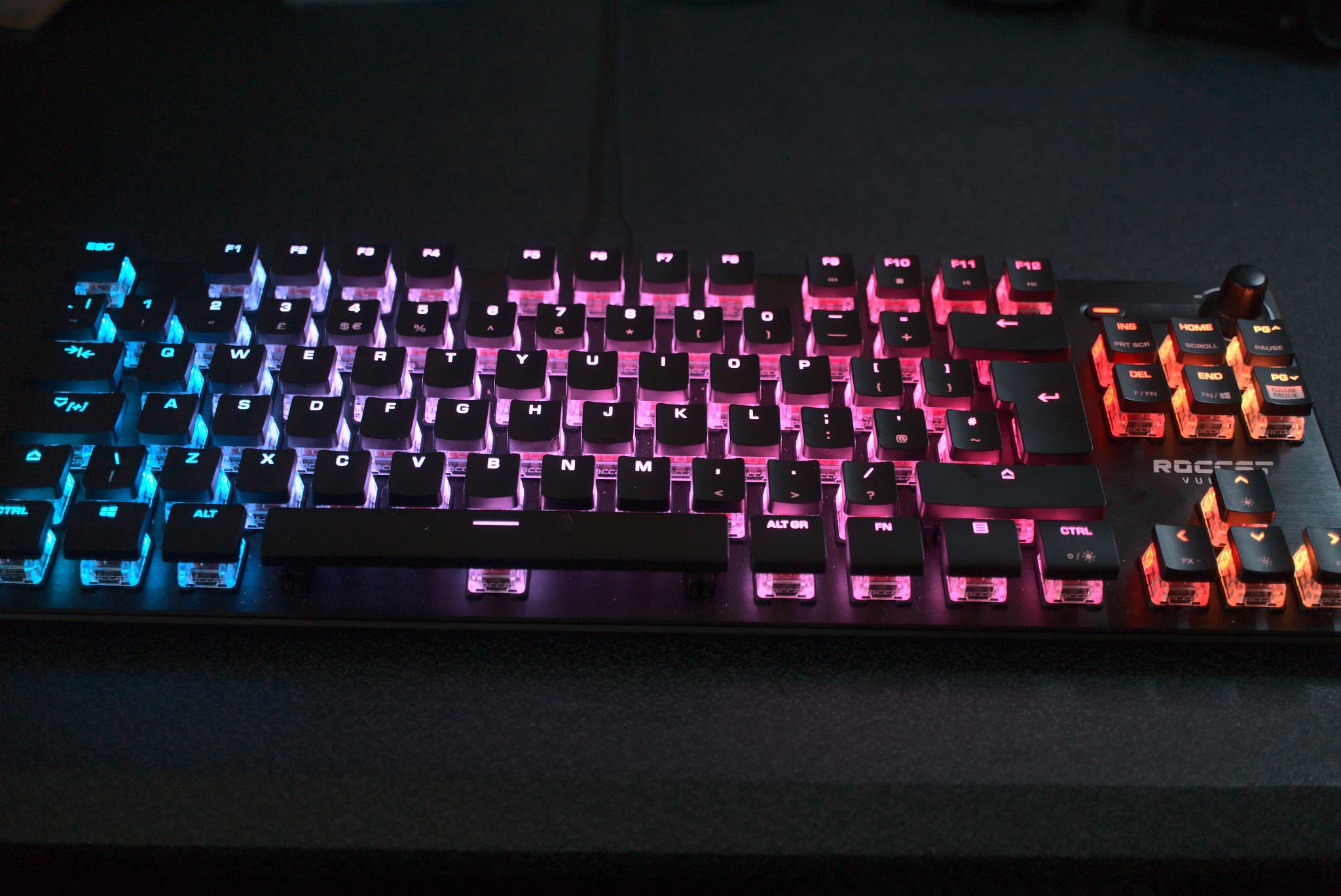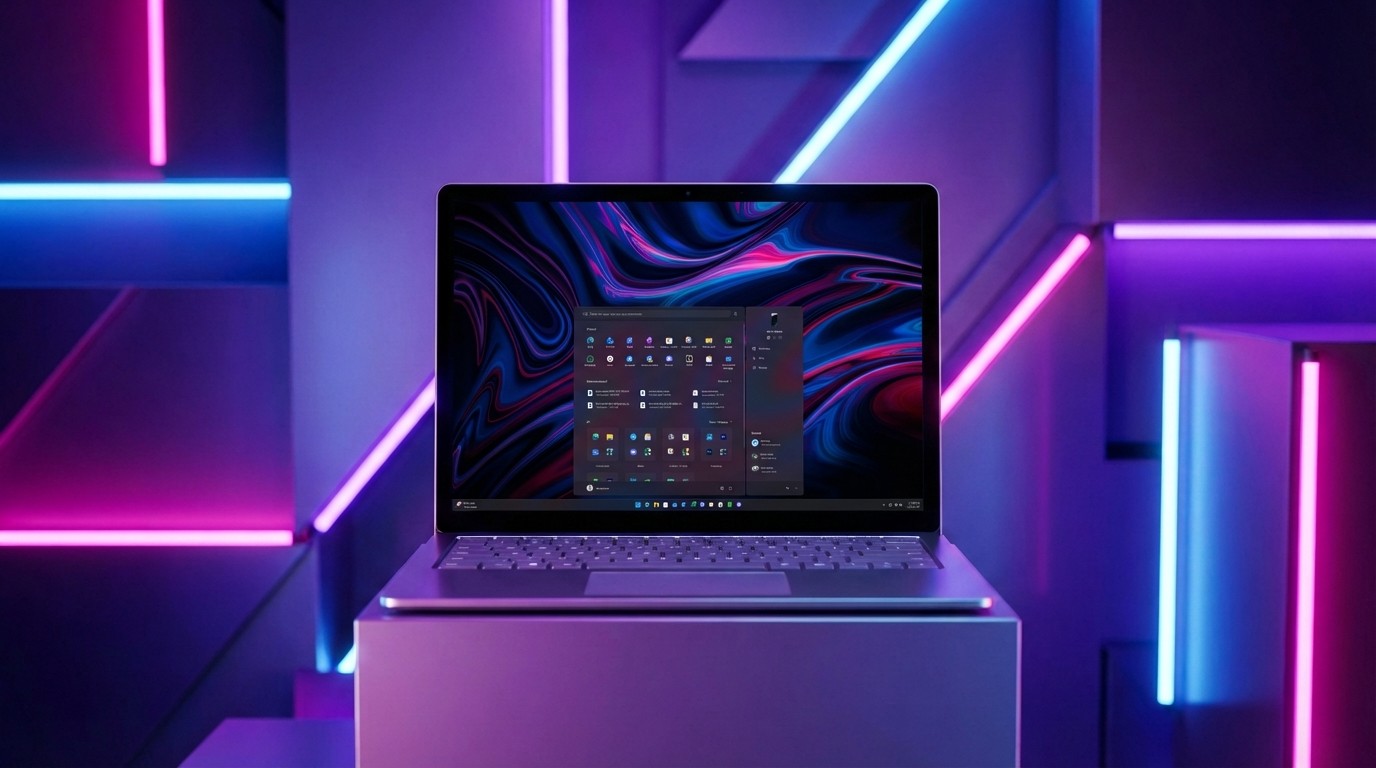Roccat is an accessory manufacturer that's also known as the sponsor of the now-folded Team Roccat esports organization. Owned by Turtle Beach, the company has come a long way with its collection of gaming peripherals and mechanical keyboards are no different. Tenkeyless (TKL) keyboards are becoming more the norm and Roccat has a TKL version of the Vulcan Pro.
Released in 2019, the Vulcan Pro is a well-reviewed mechanical keyboard with custom optical switches. Today, we're looking at the Roccat Vulcan Pro TKL mechanical keyboard with the company's own Titan Optical switches. This review will help you decide whether or not the Vulcan Pro TKL deserves a spot on your desk.
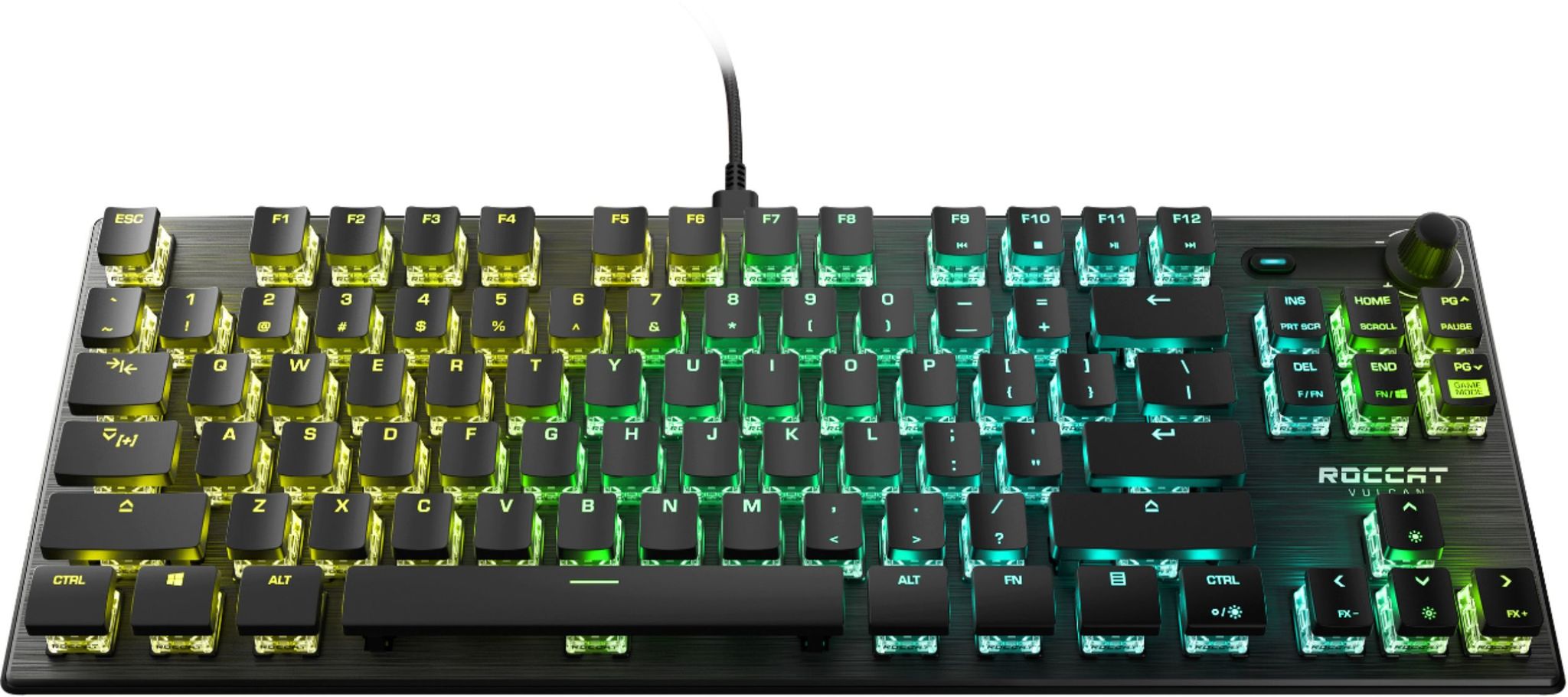
Bottom line: This is one premium-looking mechanical keyboard. It has everything you need for a gaming setup, including RGB lighting effects, amazing Roccat Titan Optical switches, and a striking brushed aluminum design.
Pros
- Responsive switches
- Striking design
- Solid build quality
- Volume control knob
Cons
- Pricey
- Smaller keycaps take getting used to
- No wrist rest
Roccat Vulcan Pro TKL design and features
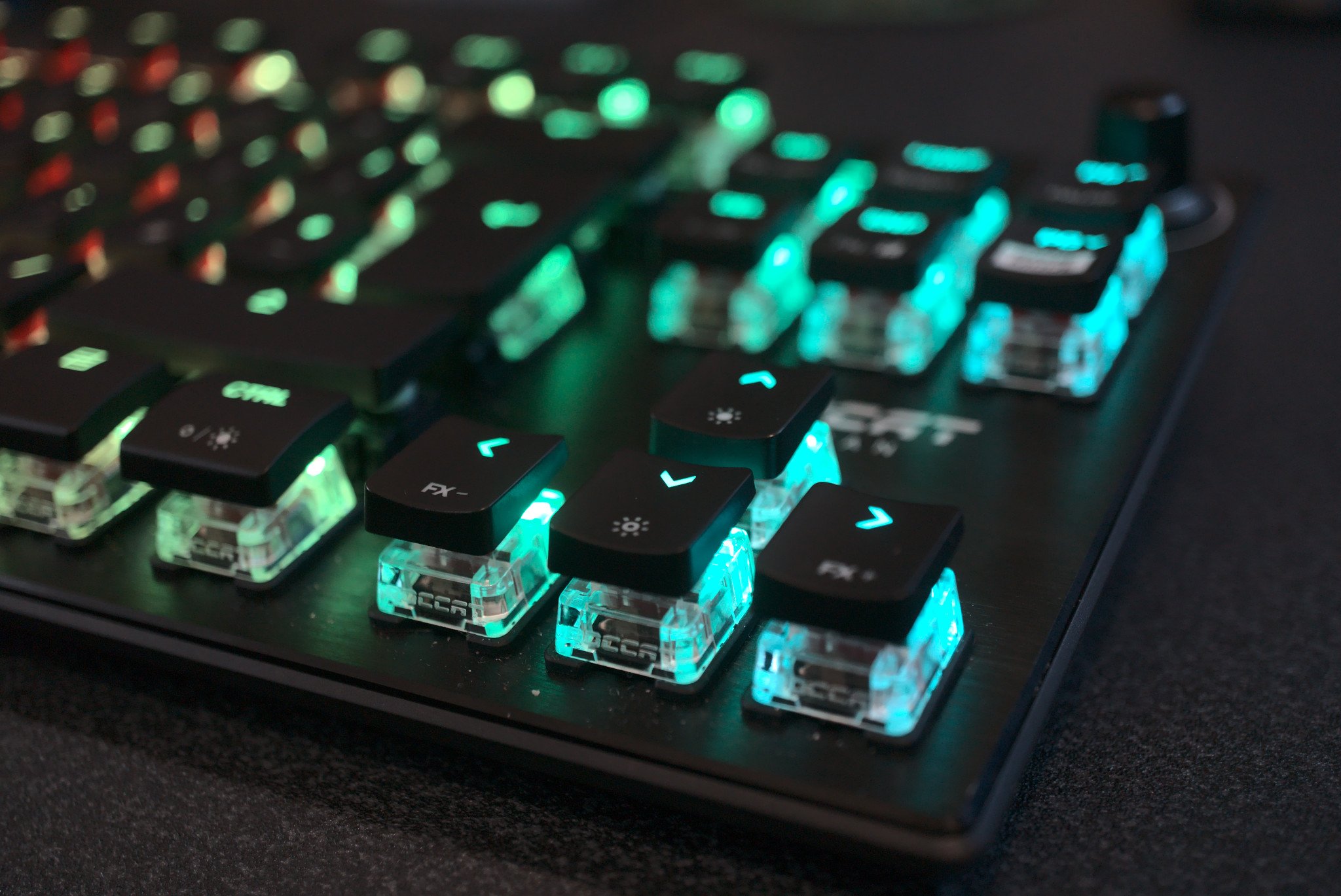
Most mechanical keyboards today are pretty good. More than good enough for the average PC owner, but when you feel like taking your typing and gaming experience to the next level, you're going to want to invest in a good keyboard. More premium options like this Roccat Vulcan Pro TKL are pricey due to the more advanced switches and additional features not found in budget keyboards.
| Category | Roccat Vulcan Pro TKL |
|---|---|
| Switch | Roccat Titan Optical |
| Key actuation | 1.4mm |
| Dimensions | 360 x 133 x 34 mm (14.1 x 5.23 x 1.33 inches) |
| Weight | 660 g (1.45 lbs) |
| RGB lighting | ✓ |
| Media controls | ✓ |
| Game mode | ✓ |
| Connectivity | USB-A |
| Polling rate | 1000 Hz |
| Profile storage | ✓ |
| Color | Aluminum grey |
And Roccat seemingly didn't cut any corners with the Vulcan Pro, nor with this tenkeyless (TKL) version. According to the spec sheet, the Vulcan Pro TKL uses Roccat's own Titan optical switches with an actuation point of 1.4mm, weighs in at a hefty 660g, has a dedicated game mode button, polls at 1000Hz, and allows for the storing of profiles.
Let's start with those switches. Optical switches a little different from normal mechanical switches in that they use light induction to register keystrokes, as opposed to physical contact with a traditional switch. While faster, these switches can often provide less feedback to the user, losing that renowned mechanical click.
Roccat's optical switches add a small metal plate to each switch that provides this feedback when the key is pressed but still uses light to register the keystroke. You could think of this as the best of both worlds — and it really is. You wouldn't be able to tell this is an optical switch-based mechanical keyboard, not until you start typing away with speed or fire up a game and realize just how fast it is.
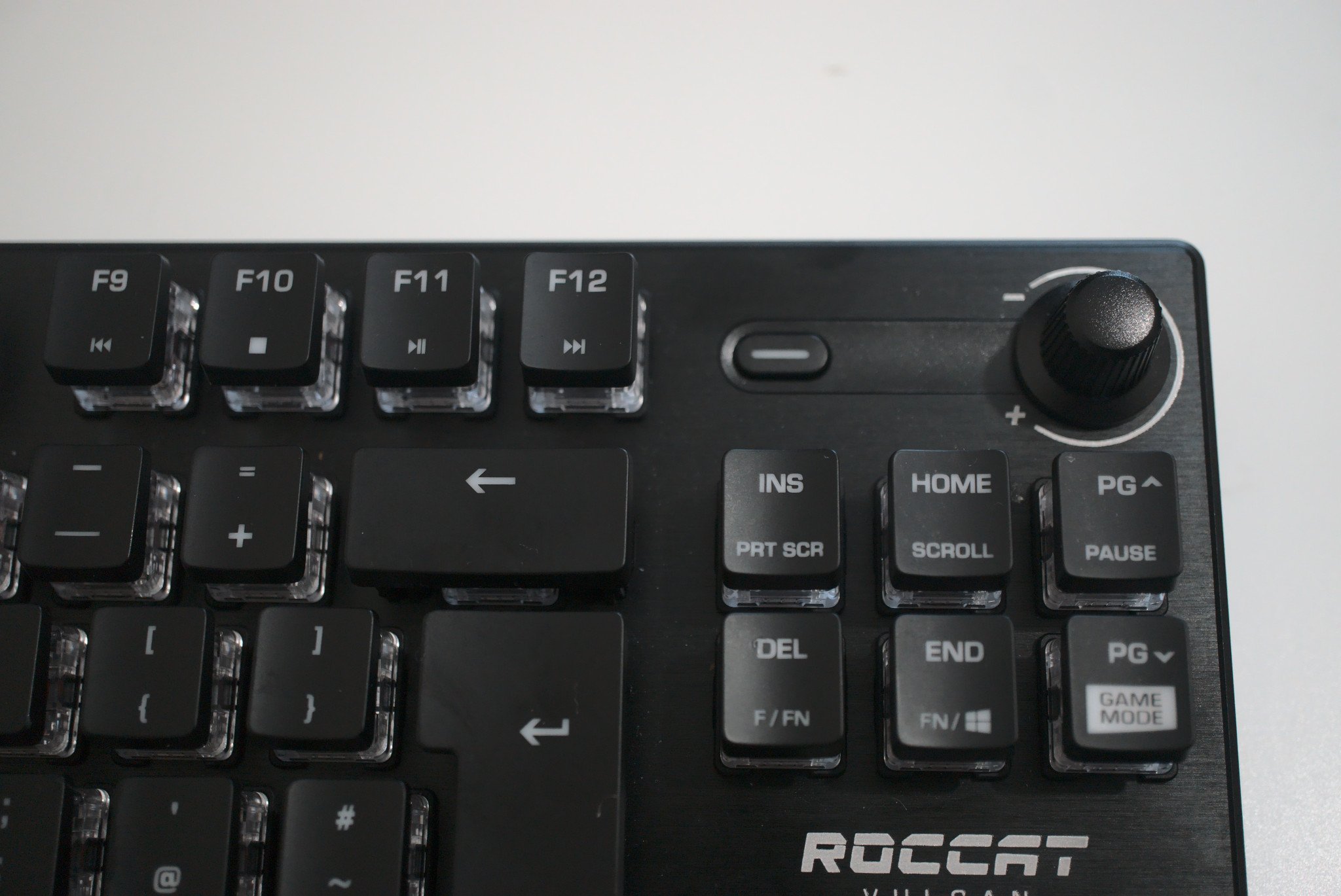
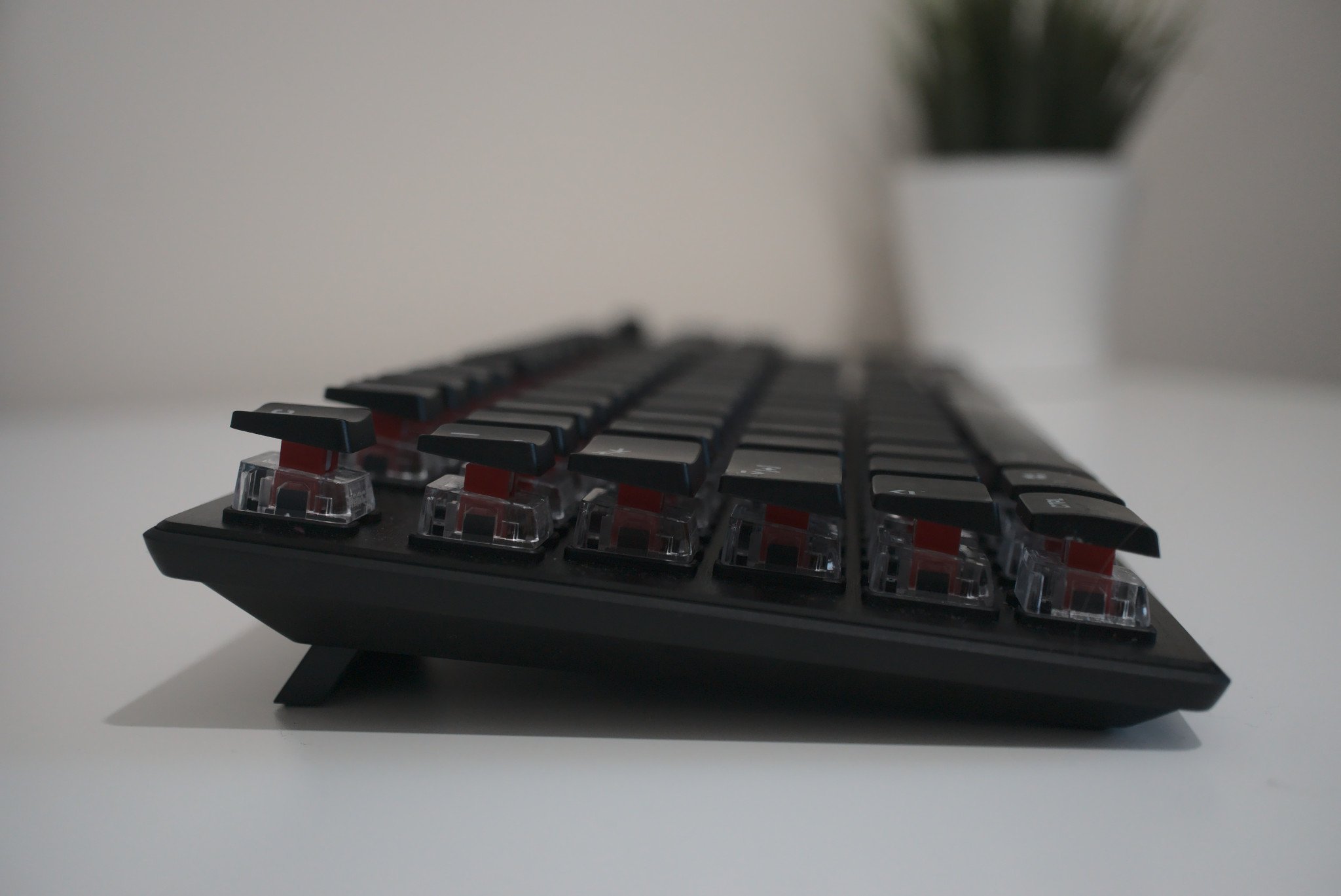
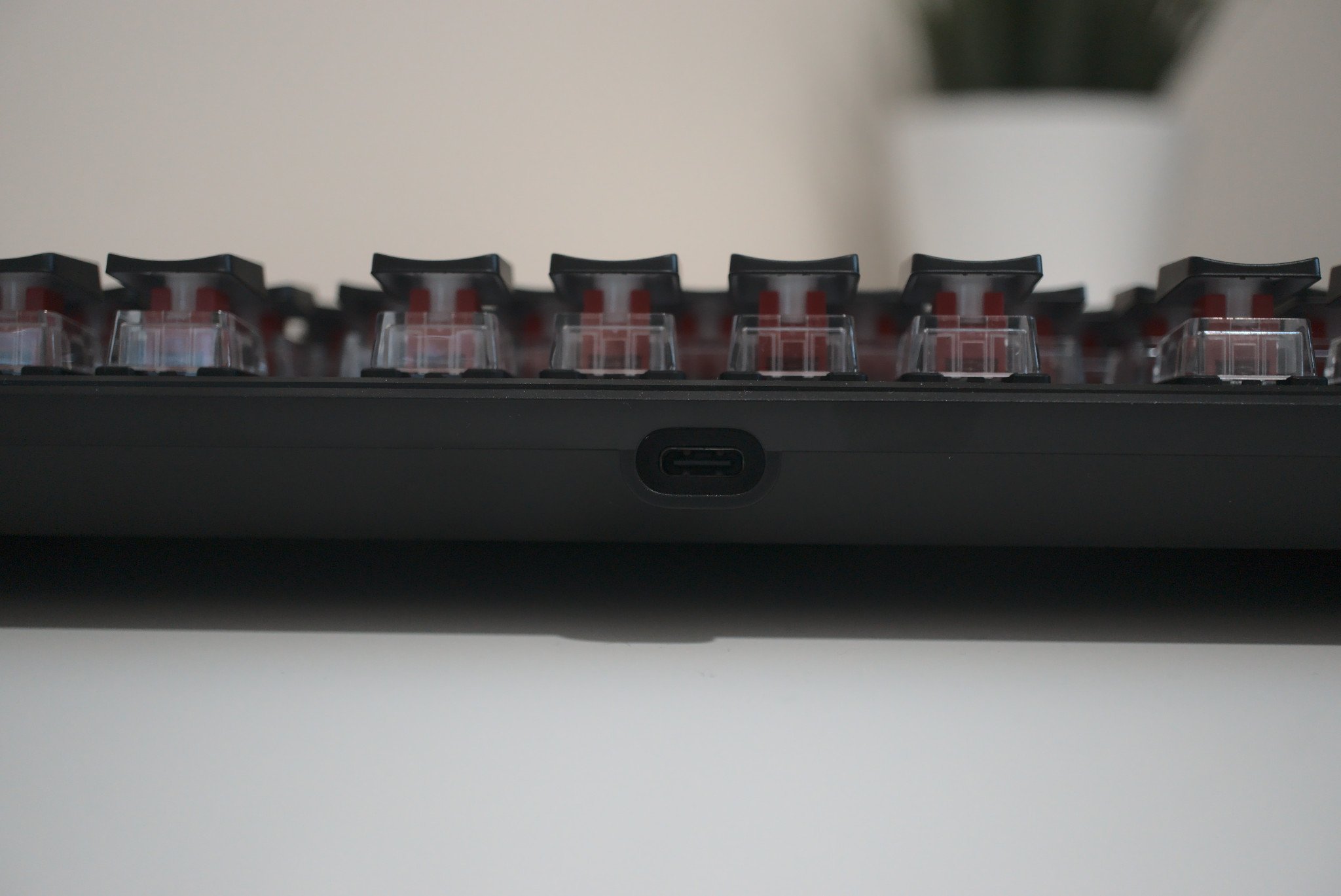
For the build of the Vulcan Pro TKL, Roccat went all out with an aluminum frame and the company made sure to cut as much meat from the keyboard as possible. The USB-A to USB-C cable is detachable, so you can replace it if it gets damaged or isn't long enough. There's a physical volume knob in the top-right corner, which is a welcome addition if you want to quickly adjust sound levels.
All the latest news, reviews, and guides for Windows and Xbox diehards.
These are the more noticeable features, but there are plenty more. I particularly like the LED status lights for caps and scroll lock, as well as game mode. When activating these, the lights underneath each key turns white, so you don't need dedicated LED indicators somewhere else on the keyboard.
Roccat Vulcan Pro TKL typing and gaming
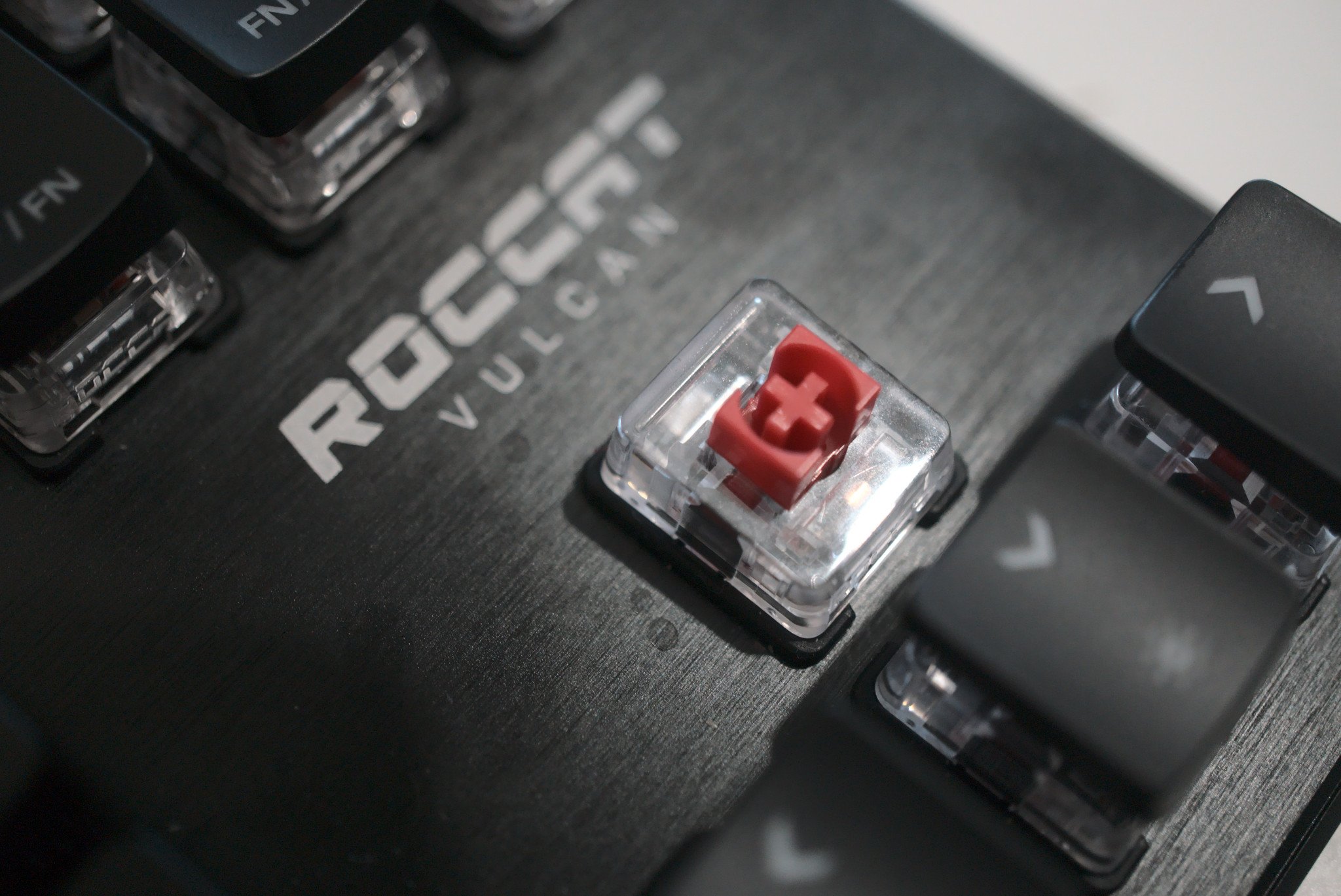
A mechanical keyboard can look as good as it wants, but it'll fall flat if it doesn't perform where it matters most. I've not only typed up this entire review using the Roccat Vulcan Pro TKL, but also countless other articles, reviews, and more for Windows Central. I've been using the keyboard for the past three weeks and it's been a blast.
Typing up words and gaming on the Roccat Vulcan Pro TKL is a blast.
Not only is typing a breeze on the Vulcan Pro TKL, after getting accustomed to the flat keycaps, but so too is gaming. You will need to spend some time with the Vulcan Pro TKL to test the waters with the keycaps. They're smaller than what's found on other keyboards and are almost flat, making it easy to miss-hit keys when you're just getting started. This issue quickly disappears, however.
Whether you're more into Call of Duty and PUBG or Stellaris and Age of Empires, this keyboard will perform very well. Being able to activate the game mode and map various in-game functions to specific keys make this a great option for any PC gamer. Like other optical switch keyboards on the market, Roccat's Titan switches are a dream to use.
Using Roccat's software, you can remap various keys to your liking. There's also support for profile storage on the keyboard itself, which is great if you frequent LAN events where you may be using another machine — or if you have different configurations for various games.
It would have been good to see a wrist rest included with this keyboard.
So, should you buy the Roccat Vulcan Pro TKL?
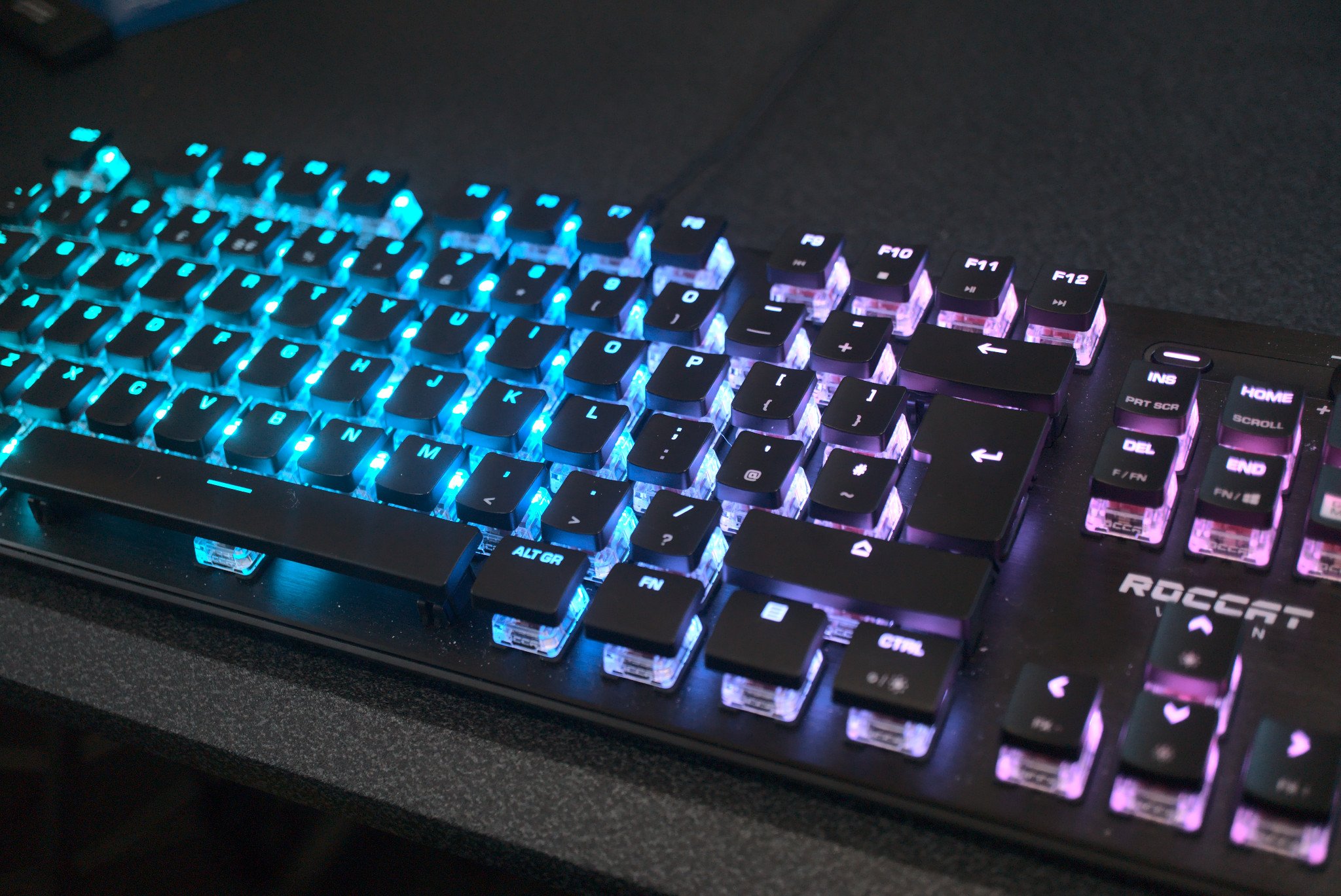
I've thoroughly enjoyed these past three weeks with the Roccat Vulcan Pro TKL. It's right up there with the best gaming keyboards from competitors, though one may be put off a little by the price. Coming in at $160 for a gaming keyboard is a little steep, especially if one considers the software isn't as feature-rich or refined as other vendor offerings.
Still, if your focus for a mechanical keyboard is the typing and gaming experiences (as it should be), this is one keyboard that's worth shortlisting. The aluminum construction is sturdy enough to protect it against flex and the optical switches from Roccat are sublime to use for typing up some work or losing yourself in Night City.

Rich Edmonds was formerly a Senior Editor of PC hardware at Windows Central, covering everything related to PC components and NAS. He's been involved in technology for more than a decade and knows a thing or two about the magic inside a PC chassis. You can follow him on Twitter at @RichEdmonds.
